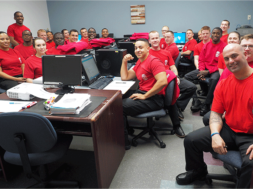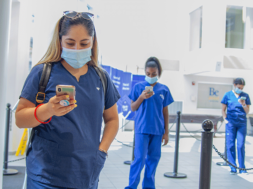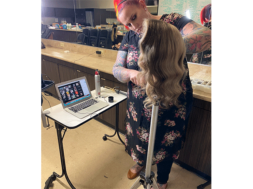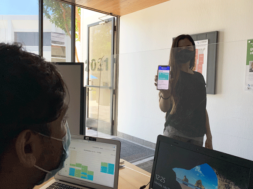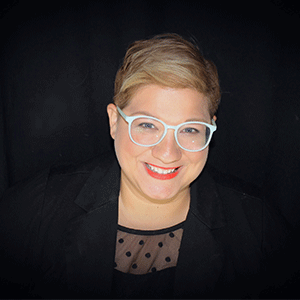
After the Pandemic: What Comes Next for the Career College Sector?
By Theresa Miulli, Founder/CEO, The Intentional Classroom
By now, we are all eagerly awaiting the day things get back to how they used to be. We are all ready to return to our daily lives and routines, see our students in person, and settle into the comfortable place we call “normal.” I urge you, no challenge you, to consider a different lens. Forget normal. Normal held us hostage and often impeded our ability to push for innovation. Normal stifled growth, and often, led us down less lucrative roads. So today, as we begin to recover from the havoc that COVID-19 has created, I beg of you to challenge tradition. Rethink where we were and build a new world for career education.
Together, as we always have, this sector can spark new, ground-breaking methods of student engagement, while boosting up the trades we so proudly represent.
The career college sector has always faced adversity, whether it be due to industry changes or regulatory obstacles. Yet, as a community, we have always challenged the status quo and pushed to validate what we do for society. You see, we provide the workforce. We provide qualified and trained individuals that serve the community. We provide access to education to students that may not otherwise have options. We have always had to adapt to societal demands and this latest hurdle is no different. It is time to adapt and create a future that is more sustainable, leaving your institutions a bit more protected than before.
Three months ago, we were doing stellar things. Career colleges were offering and delivering incredible education to students. We were beginning to reach Generation Z, and some institutions had begun to use technology in the admissions process. Every visit I took to schools as a consultant showed me teachers that were truly conquering the hands-on training required from our industry employers. As a community, we were fighting the good fight, showing the world that what we offer is worthy. And then, just like that, everything changed. Suddenly, the trades we had been training our students for, became “essential.” Suddenly the world was paying attention and understood the need for nurses, medical assistants, phlebotomists, chefs, IT professionals, mechanics, and truck drivers (the list continues). With the spotlight on us, what will we do differently moving forward?
As COVID-19 hit we found ourselves challenged with necessary action to continue moving forward. Hands-on programs had to find a way to go digital. Virtual admissions has been brought to life. Student retention began to slide, as many of our students had to work, became unemployed, or lost their childcare. Some schools are unable to place students into employment because of industry closures, while others are struggling to fill the need in allied health establishments. For the first time for many, teachers began to teach online, learning digital platforms and content delivery as they went. And yet, with all of these obstacles, I see most schools continuing to move forward.
As we turn the corner away from the pandemic, I encourage you to think differently about some key areas of opportunity.
Hybrid programs
Whether you were prepared or not, your teachers were forced to jump into the world of digital education this spring. Now that they have begun to find their footing, consider building hybrid programs for the near future. I believe accrediting bodies will have to consider these program applications with a much more open mind, as we have now proven that trade and technical programs can function this way. By limiting the number of hours students have to be on campus, you simultaneously lower overhead expenses, while providing students an easier opportunity to work while in school. Consider offering your theory-based courses online, and only requiring students to be on campus when doing laboratory work. Student to teacher ratio can increase in online education, allowing you to minimize payroll, while still delivering stellar education.
Not sure where to begin? One of the hardest things for all of us to do is challenge what we have always done. It does not mean we should avoid challenging tradition though! On the contrary, innovative education only happens when we take a step back, reevaluate what we are doing, and consider new ways to approach our lessons. Take a step back. Look at your current curriculum. Can you shift your daily plans to focus on monthly areas of study? Are you able to shift all practical work to one to two days a week? With a little ingenuity and outside of the box thinking, I know your team can develop a new, more efficient way to deliver education, in hybrid form.
Virtual admissions
Many of you have already begun to offer this. For those of you who have not made the leap to virtual admissions, the time is now! Today’s customer is used to shopping online. Why should shopping for schools be any different? Think about this for a second. If you go to a website to buy something, and for some reason the site is down, you may get a message to come into the store for the purchase. Will you go? Probably not. Instead, you will start looking for an alternative website to buy it online.
With this in mind, it is time to evolve our admissions process to meet student needs and expectations.
Prepare a virtual tour. Do virtual conferencing interviews with potential students. Offer to virtually assist them in their financial aid appointments.
Have a virtual open house! There are so many great ways to reach students through the use of technology. Just because your state opens up does not mean you have to go back to all in-person visits for prospective students. Think creatively!
Virtual tutoring
As we move forward, we should consider the experiences we have had over the past 60 days, and determine where we could potentially stay digital, easing stress on faculty and providing a more robust set of services to students. Virtual tutoring is one such option. Pensacola State College has found incredible success over the past five years offering this service to students. Michael A. Johnston, Executive Director, Institutional Research at Pensacola State College states “Virtual Tutoring is a program that brings a tutor to the student. The traditional ideologies require a student to travel to the resource center, but we have recognized that traditions should always evolve. This program allows a student to speak to a tutor, engage in verbal conversation, and see what a tutor writes on a tablet; all from the convenience of a student’s house, a coffee shop, or even a break room at work. We also engage in non-traditional hours, we run our virtual tutoring services until midnight six days weekly. We recognize our students are working non-traditional hours, have children and families, so many times 9 p.m. – 12 a.m. is the only time they have to study.”
Offering virtual tutoring expands hour availability for students to seek the help they need. Tutors can work from home, with students connecting from wherever they might be. Having the ability to expand hours to late night and early morning assistance provides the working student more opportunity to receive academic assistance, and could improve your graduation, licensing and placement rates overall. The best part? All a teacher needs are a computer and access to a conferencing program like Zoom or Go ToMeeting. After the past two months, most should now have that!
Mock interviews
In today’s day and age, many first interviews are held via a conferencing application. Struggling to get your students placed? Worrying that they may not be prepared for a Zoom interview? Now is the time to start incorporating these types of interviews into your exit process, ensuring students are prepared to interview with potential employers in ways beyond the in-person traditional interview. Doing this will create more well-rounded graduates, that are readily prepared to handle any interview platform that may be presented before them.
Embrace digital curation
While technology in education has been encouraged for years, the world has finally been forced to integrate the use of laptops, cell phones, and video conferencing! In light of the COVID-19 panic, many of you have already begun to develop digital projects, requiring students to develop internet content for a grade. This may have been through video creation, blog writing, social media content, or some other unique way (please share if you came up with something cool). Now that you have those projects built, incorporate them into your daily curriculum. Generation Y and Generation Z demand the ability to create content for a digital platform, however, many schools have been hesitant to do this. A form of active learning, digital curation involves students in the learning process, encouraging long term retention of material. Now that you have started to incorporate this into your lessons, take the chance to really go full force into this teaching modality. Students will appreciate you addressing their needs, and will, in turn, put in the work needed for success.
So, what is next?
It is up to us. Do we keep moving forward as we always have, or do we take this opportunity we have been presented and drastically change the landscape of higher education in the career college sector? I passionately believe that if we, as a sector, come together, we can challenge tradition, building stronger, more engaging, and inspiring programs that incorporate the digital environment. So, what say you? Are you ready for an innovative change?
THERESA MIULLI, serving as a consultant and speaker, has built a career developing programs, training teachers, and unifying teams throughout the country. Founding The Intentional Classroom LLC in early 2020, Theresa now strives to offer online and in-person training to Educators and Administration in the career college sector. With a license in Cosmetology and a Master’s in Non-profit Management, Theresa is passionate about providing relevant, easy pathways for career college students in their mission for a new professional future. Currently earning her Doctorate in Higher Education, Theresa brings a unique perspective to academic management and curriculum development, blending her vocational school experiences with her traditional education. She is currently available for a variety of career college consulting services, centric to student success, faculty development, and curriculum review.
Contact Information: Theresa Miulli // Founder/CEO // The Intentional Classroom // 239-292-6325 // tmspeaks@theresamiulli.com // www.theresamiulli.com // @theresamiulli on Linked-In and Facebook
@theresaspeaks on Instagram




